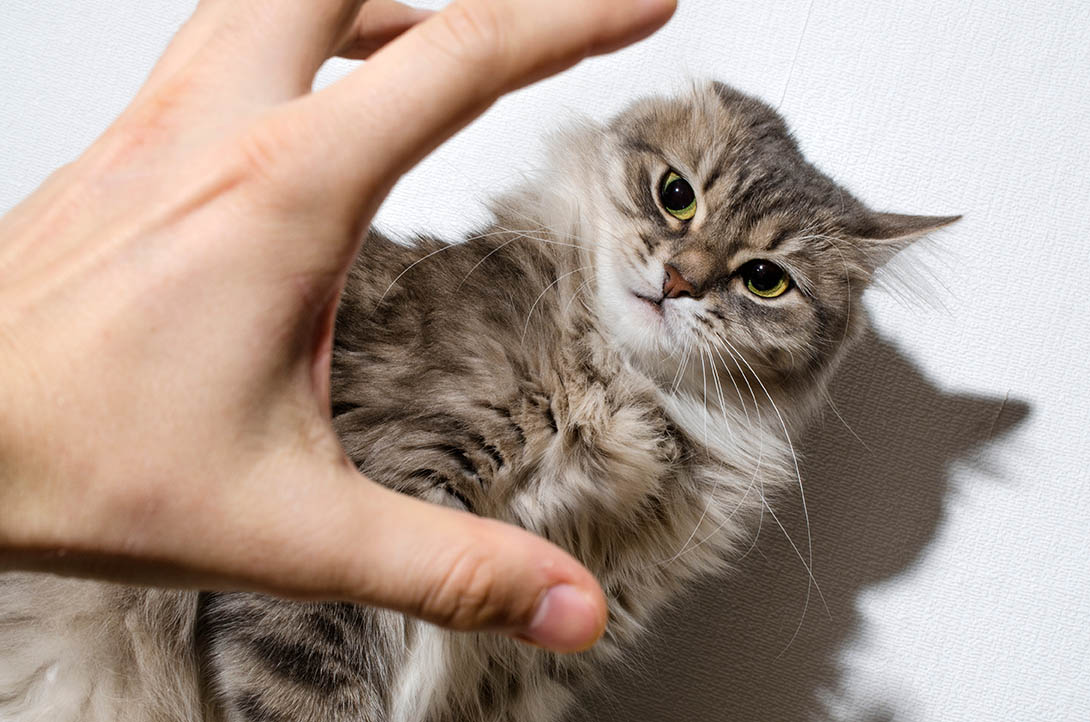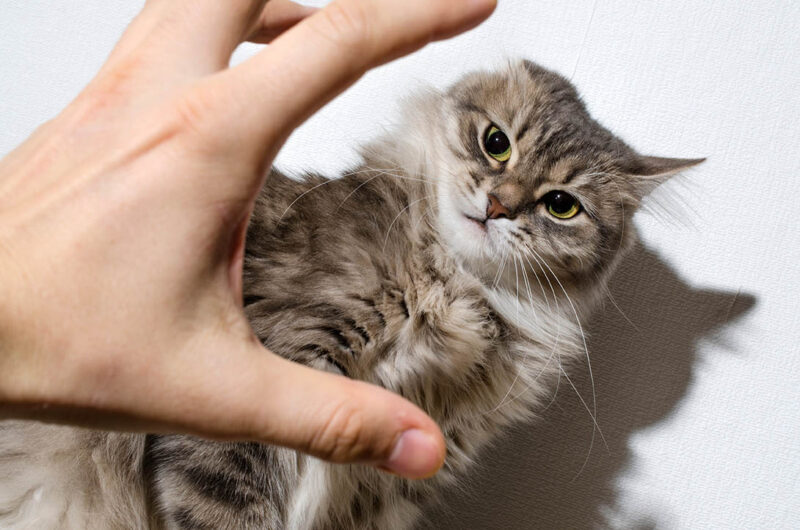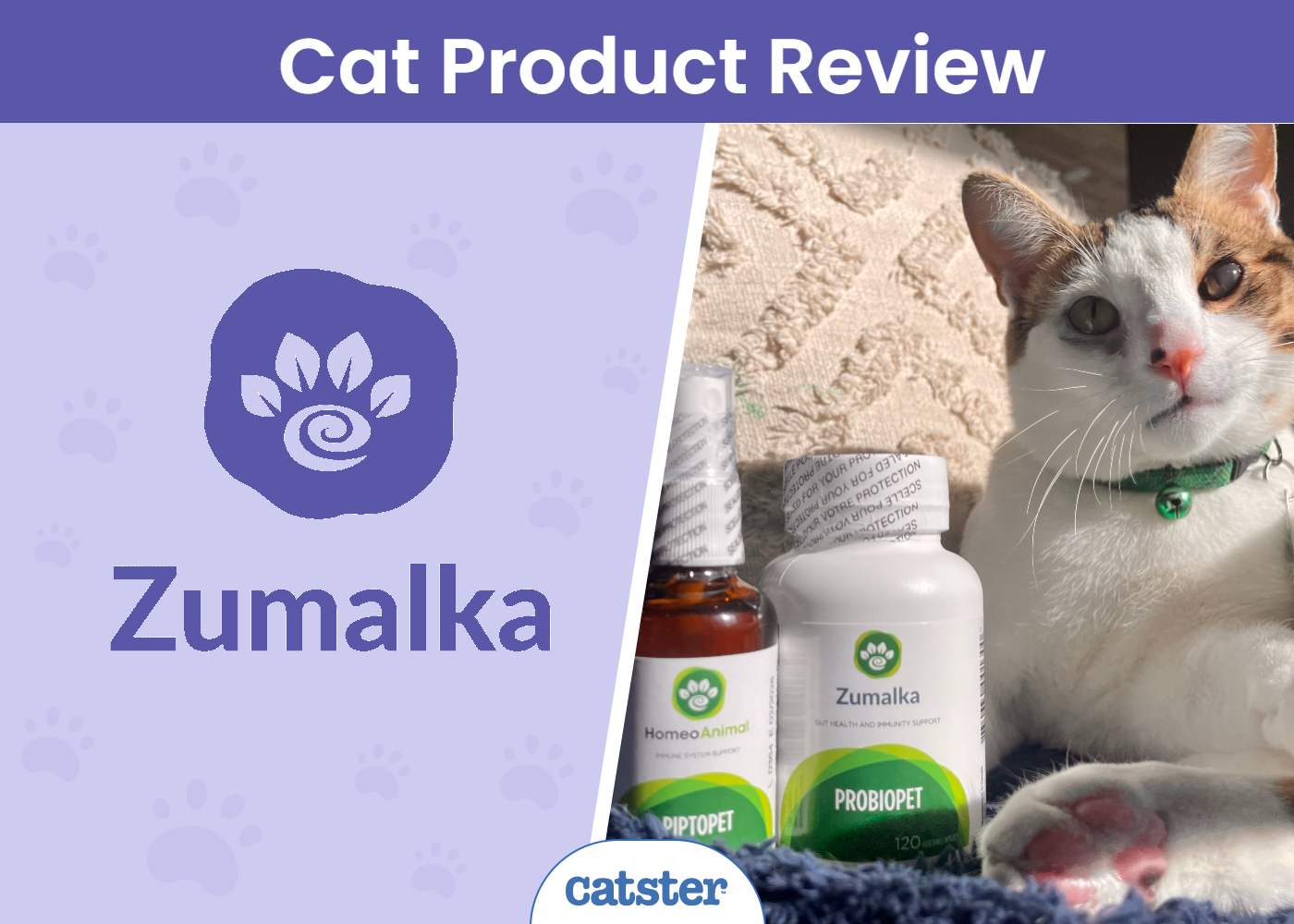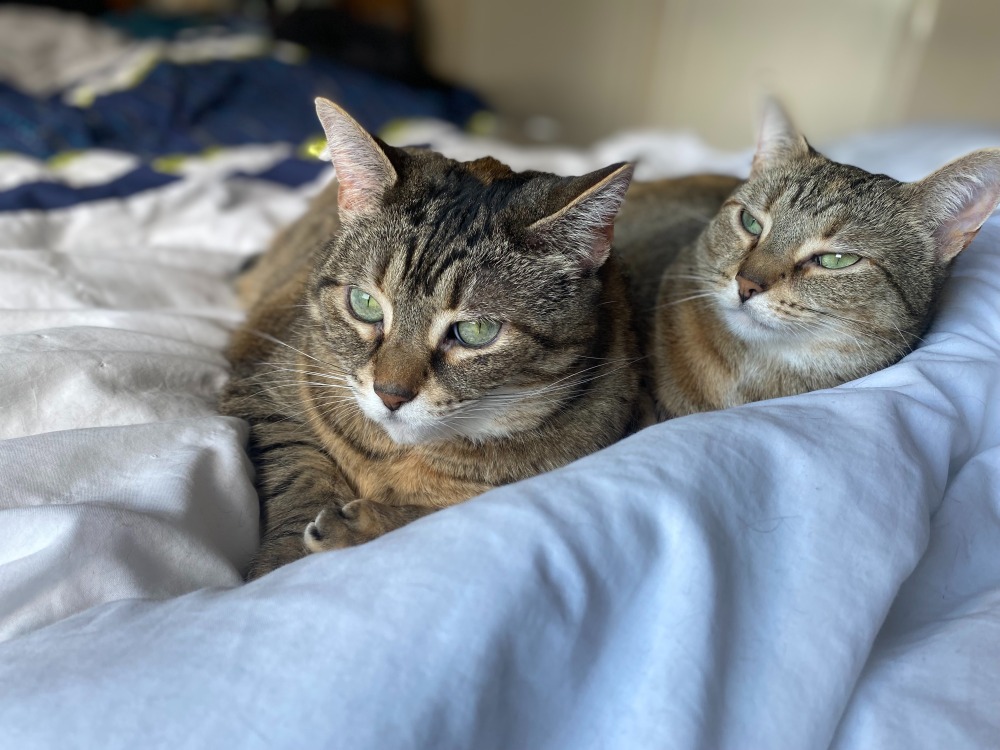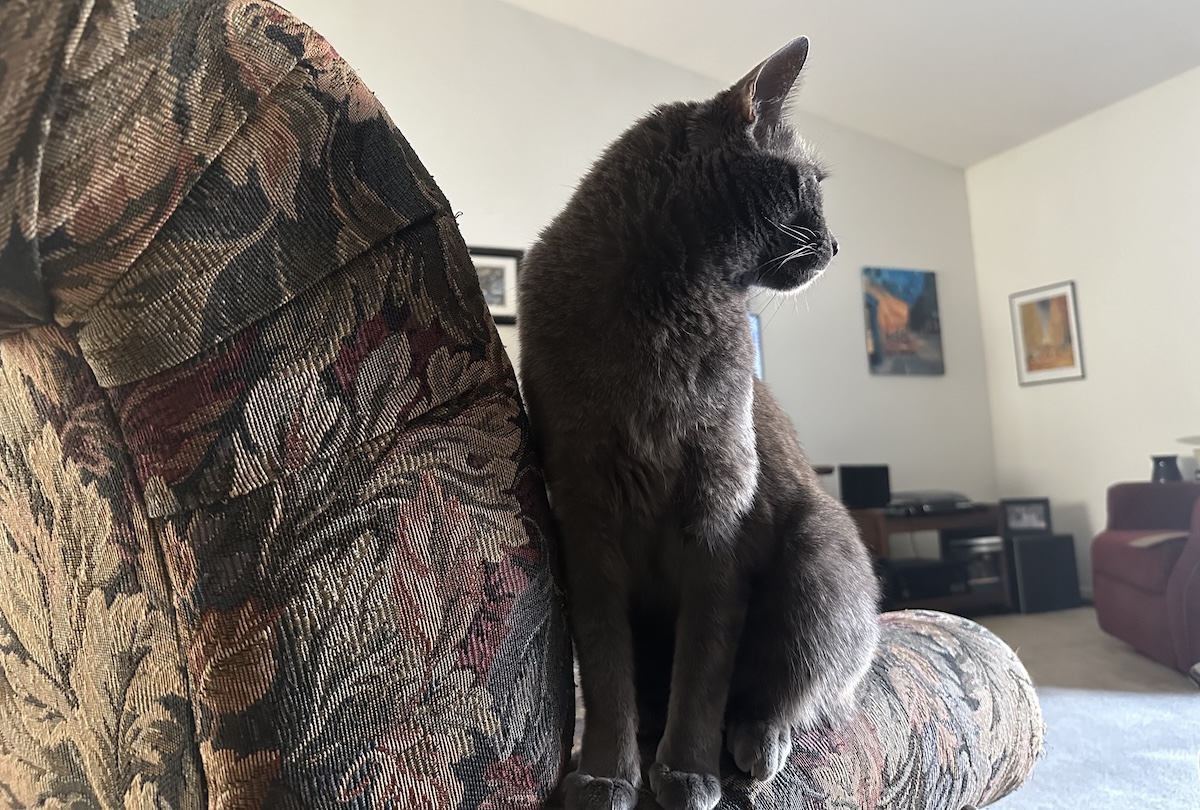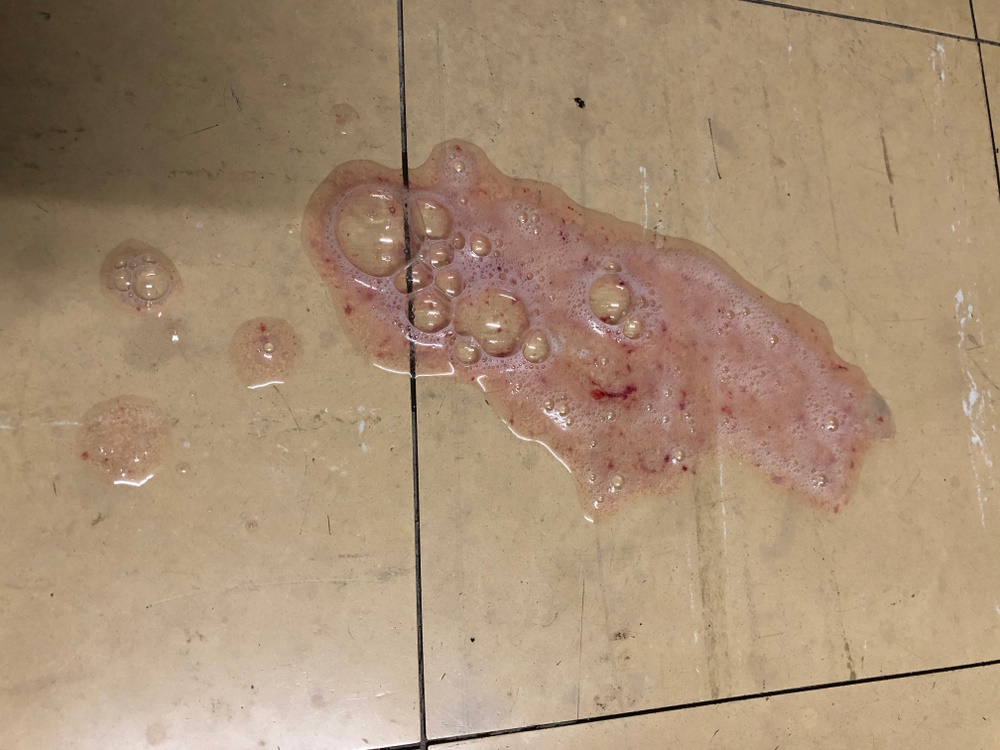No two cats are the same. Just because you’ve owned one in the past or have known somebody else who has owned a cat that loves to be cuddled, that does not mean that all cats like to be picked up or held.
There can be many reasons that your cat might not like it. They may have had a bad experience in the past, they may suffer some kind of pain or discomfort when you pick them up, or they may be disgruntled, scared, or dislike being held at all. They may try to scratch and wriggle out of your arms, especially if they feel unsafe, so be careful not to get scratched or bitten. If this does happen, speak to your doctor, as these wounds may get badly infected.
Cats can be loving and cuddly, but they can also be shy and private, so even if you have a cat that accepts being picked up from time to time, it does not mean that you will be able to gather them up in your arms every time the whim takes you. Respect your cat and their preferences, as there are many other ways you two can bond and enjoy each other’s company.
The 6 Reasons Why Your Cat Doesn’t Like to Be Held Up
1. It Isn’t a Natural Position for Cats
In the wild, cats would only really mix and socialize with other cats for mating purposes or to establish territories, and it is not normal behavior for them to be picked up. They may slowly approach another cat that enters their territory, sometimes yowling, hissing, and tail twitching, with raised fur and ears low down, before either walking away or getting into a fight.
On the other hand, if it’s a familiar cat they like or live with, there will be head rubs and trilling noises. They would not attempt to lift one another off the ground. Therefore, the whole experience is alien to them individually and evolutionarily speaking, and they may feel too exposed and unsafe when being picked up.
If anything, cats would only experience being picked up in the wild if they had been caught by a predator and were being dragged away. Even though your cat is domesticated and several generations away from having lived in the wild, these basic survival instincts remain, especially in those cats that were stray before being rehomed and have not been adequately socialized.
2. Some Cats Gets Scared
The thought of being up and carried away could be terrifying to your cat, and once this terror kicks in, they will not even notice that it is you—the one who feeds them and tickles behind their ears—doing it.
Even if being picked up does not directly scare them, they could feel fear because they will find it more difficult to get away from any imminent danger or incoming threat. If you have a cat that is easily scared by loud noises or sudden movements, it is likely fear that is putting them off being picked up, too.
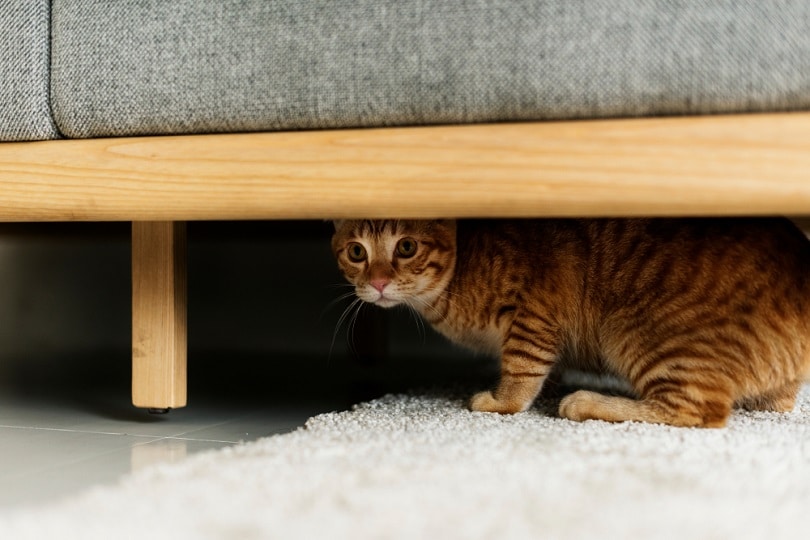
3. Some Like to Climb Themselves
Some cats are very independent and can view it as disrespectful if you pick them up when they are clearly more than capable of climbing up themselves.
If your cat likes to be up high but doesn’t like you picking them up, provide them with perches such as climbing and scratching posts or the dedicated cat shelves and layers that you can fit on your walls. Once installed, your cat may choose to climb on top of these shelves and give you eye-to-eye attention this way instead.
4. They Don’t Like to Be Restrained
We generally gather a cat up and put our arms or hands around them when we pick them up. We do this to prevent them from falling, but your cat may not like to be physically restrained in this way, even if it doesn’t mind being gathered up in your arms.
Try scooping your cat up, rather than grabbing them, and see if they are calmer with you picking them up like this.
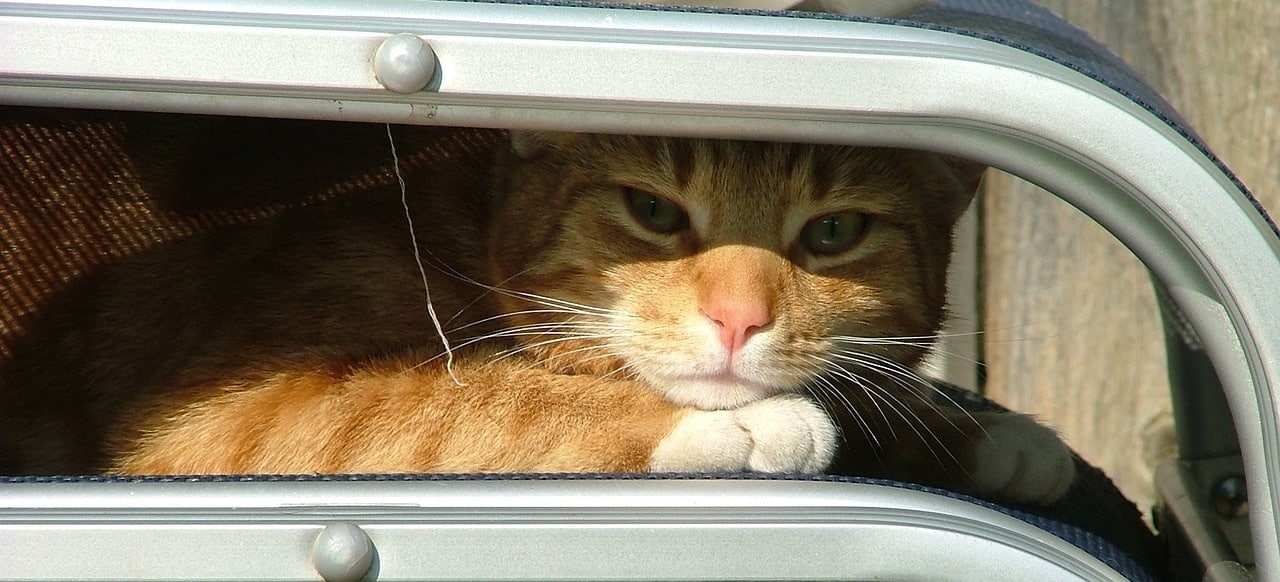
5. Previous Negative Experiences
Like any animal, cats learn from experience. If you’ve adopted an adult cat, you have no idea what their previous life was, or what experiences they had to endure before arriving with you. If your cat had to endure any kind of abuse at the hands of a former owner or any other person, it is perfectly reasonable that they would be afraid of you picking them up.
More recently, your cat may simply associate being picked up with going to the vet or the groomer or having something done to them that they do not enjoy.
It may be possible to retrain a cat so that they forget the negative experience and associates being picked up with a positive experience (think tasty treats), but you should appreciate that this may never happen, and even if it does, it will take a lot of work to reprogram such behavior.
6. They May Be in Pain
Another reason that your can might dislike being held or picked up is that they are in pain. If your cat previously enjoyed, or at least put up with, being gathered up in your hands, but they now hate it, it may be time to consider a trip to the vet.
Your cat could be suffering a physical injury or something that is invisible to the human eye and cannot be detected without the professional help of a veterinary checkup.
Remember that cats learn by experience, so even once the problem has been fixed and the pain is gone, they may still be reluctant to be picked up.
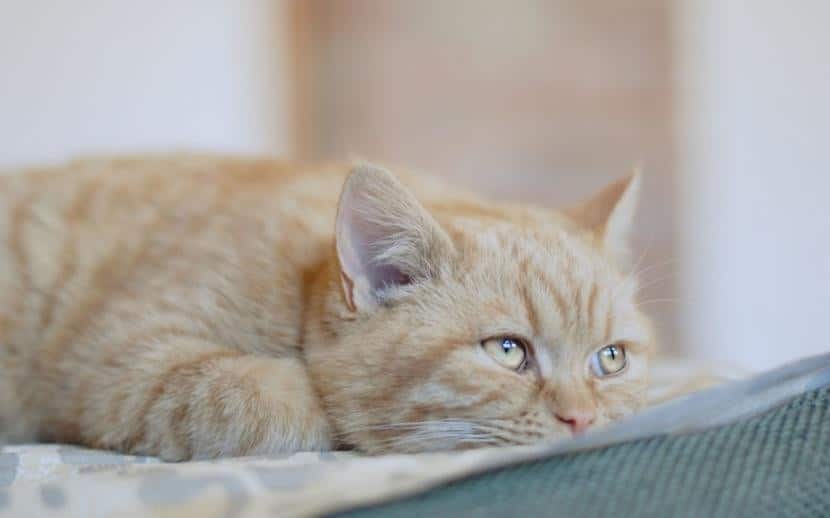
- Related Read: Why Doesn’t My Cat Like Me Anymore (And How to Fix That)
How to Encourage Holding
It is possible to train or retrain a cat. Your pet kitty can be taught that being picked up or held isn’t necessarily a wholly negative experience. Take your time, be understanding, and don’t force your cat to stay in your hands if they are clearly terrified or hating the experience.
Some cats will never enjoy being picked up, while others cats will enjoy the experience. You can try giving your cat a healthy treat whenever they let you pick them up and keep hold of them, too. However, there are other ways you can enjoy a special moment with your kitty without putting them through something they dislike.
Conclusion
Learn to recognize what they do like and adjust to their preferences as much as possible, rather than forcing them into something that scares them, like being picked up.
Featured Image Credit: Ukki Studio, Shutterstock

